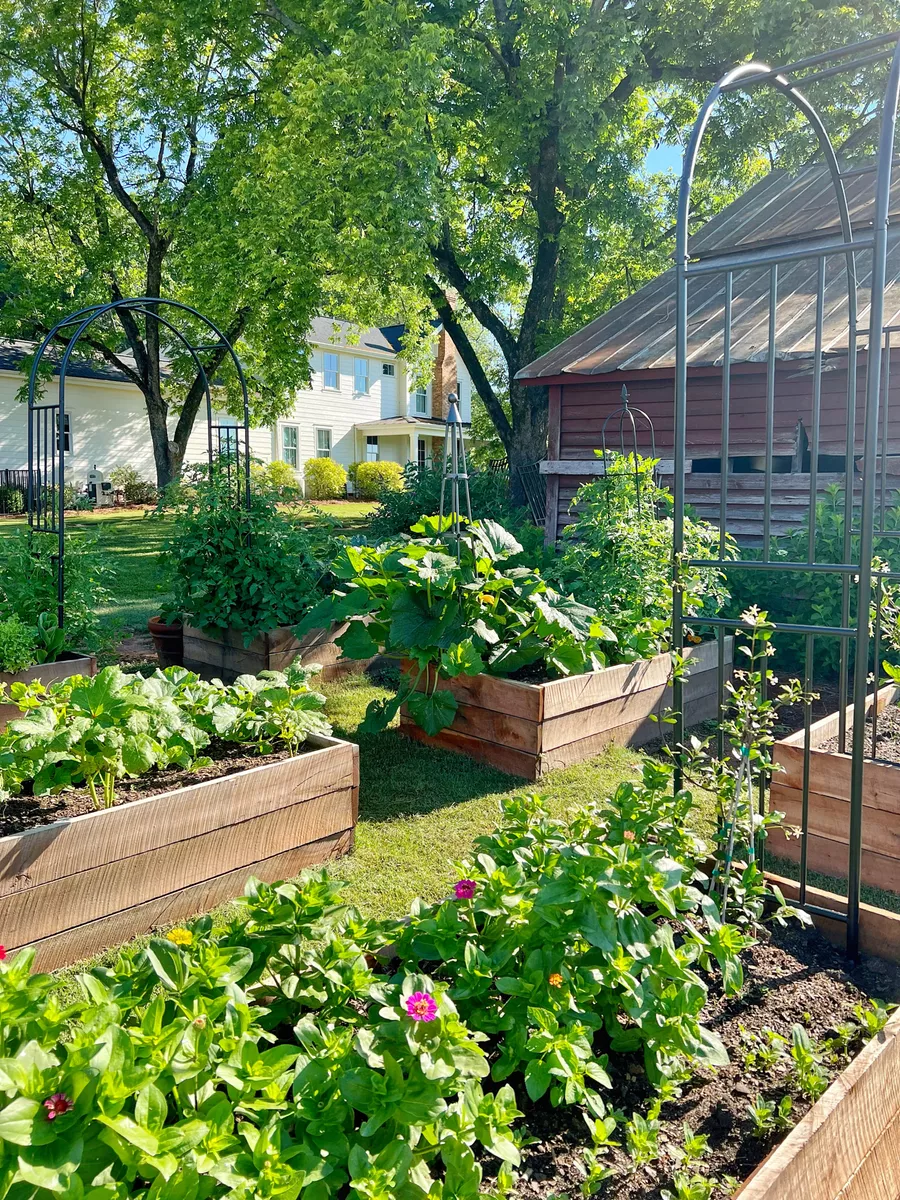Sustainable Gardening Practices for an Eco-Friendly Garden
Sustainable Gardening Practices for an Eco-Friendly Garden
Blog Article
Opening the Advantages of Gardening: A Detailed Consider the Different Types and Their Effect On Well-Being
Checking out the multifaceted advantages of gardening discloses a spectrum of techniques that substantially enhance specific wellness. As we analyze these varied gardening strategies, it ends up being evident that their effect can reverberate on personal, social, and ecological levels, motivating a closer look at exactly how these connections develop a cohesive narrative of holistic health and wellness.
Types of Horticulture

Blossom horticulture, one more popular group, highlights the aesthetic allure of grown blooms. This kind can improve landscapes and promote biodiversity by drawing in advantageous pollinators. Likewise, herb horticulture entails expanding fragrant and cooking plants, adding both to cooking and all-natural treatments.
Container gardening deals flexibility, making it possible for individuals with limited area to take part in horticulture by using pots and planters. This technique is particularly prominent in urban settings. Elevated bed gardening, on the various other hand, involves producing raised plots that boost soil drain and accessibility, making it much easier for gardeners to manage their plants.
Last but not least, community horticulture cultivates collaboration amongst people in shared areas, advertising social interaction and collective obligation. Each kind of gardening serves distinctive objectives and caters to various choices, making gardening a flexible task that can be customized to individual requirements and settings.
Mental Wellness Advantages
Participating in different sorts of horticulture not just yields concrete incentives such as fresh fruit and vegetables and stunning blossoms yet additionally offers considerable mental health and wellness advantages. Study indicates that gardening can be a powerful tool for decreasing anxiety, anxiousness, and clinical depression. The act of often tending to plants and growing a yard cultivates a feeling of purpose and accomplishment, which can enhance overall emotional well-being.
Moreover, gardening encourages mindfulness, as it requires individuals to focus on the present moment, whether it be growing seeds or supporting development. This mindfulness technique can bring about lowered rumination and boosted state of mind stability. The exposure to natural surroundings during horticulture has actually likewise been connected to improved cognitive functioning and decreased feelings of exhaustion.
Social communication plays a crucial duty in psychological health and wellness, and neighborhood gardening initiatives provide opportunities for people to get in touch with others, fostering a feeling of belonging. The common experience directory of horticulture can grow friendships and assistance networks, better bolstering emotional durability.
Physical Wellness Perks
Many individuals might not realize that gardening likewise provides significant physical health and wellness benefits. Involving in gardening tasks calls for a variety of physical activities, consisting of bending, lifting, excavating, and growing, which collectively contribute to better strength, flexibility, and endurance. These activities can boost cardio health by promoting a raised heart price, thereby decreasing the danger of heart problem.
Moreover, gardening can act as a moderate-intensity workout, aiding people achieve recommended exercise degrees. Research learn this here now studies show that normal participation in gardening can burn significant calories-- roughly 200-400 calories per hour, depending upon the strength of the jobs done. Such calorie expense is beneficial for weight management and overall metabolic health.
Additionally, exposure to sunlight during gardening can facilitate the synthesis of vitamin D, which plays an important function in maintaining bone health and supporting immune function. The act of gardening frequently involves functioning with dirt, which has been linked to possible psychological and physical health and wellness benefits due to the presence of valuable microbes.
Social Connections Through Horticulture
The common aspects of gardening foster meaningful social links among individuals. Community yards, particularly, work as vivid centers where people from varied backgrounds integrated, growing not only plants yet likewise relationships. These common areas urge partnership, allowing people to exchange expertise, skills, and sources, consequently enhancing their gardening experience and promoting a sense of belonging.
Interaction in horticulture tasks usually causes the formation of relationships and support networks. Individuals frequently unify for common objectives, such as growing seasons, harvest parties, or academic workshops, which reinforce social connections and create a feeling of area. Such interactions can ease feelings of isolation and boost mental wellness, as people find friendship and camaraderie in shared undertakings.

Ecological Effect of Horticulture
Horticulture significantly adds to ecological sustainability in multiple means. Home gardens offer essential habitats for numerous species, including pollinators such as and butterflies, which are important for ecological community health.

Additionally, gardens play a crucial duty in water conservation. Tactical landscapes, consisting of native plants and xeriscaping, lower water usage and prevent drainage, thus protecting regional waterways from air pollution.
Final Thought

In verdict, gardening serves as a complex activity that improves wellness across various domain names. The diverse sorts of horticulture-- including vegetable, blossom, natural herb, container, and raised bed-- add to psychological and physical health, foster social connections, and advertise ecological sustainability. By participating in gardening methods, people can experience better top quality of life while also supporting area bonds and eco-friendly health. Eventually, the alternative advantages of horticulture underscore its importance as a crucial component in enhancing overall wellness.
Report this page